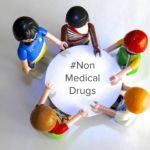Thalia Eley and Gerome Breen explore a new systematic meta-review of predictors of antidepressant treatment outcome in depression, which looks at clinical and demographic variables, but also biomarkers including both genetic and neuroimaging data.
[read the full story...]Antidepressant withdrawal: reviewing the paper behind the headlines
Joseph Hayes and Sameer Jauhar set the record straight on antidepressant withdrawal. They show how the recent review by Davies and Read is seriously flawed and does not accurately portray the data. They conclude that we urgently need clearer evidence on the incidence, severity and duration of any symptoms related to antidepressant withdrawal.
[read the full story...]Preventive cognitive therapy when continuing or tapering off antidepressants

Linda Gask is encouraged by the findings of a new high quality RCT (the DRD study), which compares preventive cognitive therapy while tapering antidepressants versus maintenance antidepressant treatment versus their combination in the prevention of depressive relapse or recurrence.
[read the full story...]“Where I End And You Begin”: A personal commentary on Russo’s ‘Through the eyes of the observed’ #PsychDrugDebate

Sarah Carr shares her own experiences of psychiatric medication and provides a critical reading of Jasna Russo’s new #PsychDrugDebate paper: ‘Through the eyes of the observed: re-directing the research on psychiatric drugs’.
[read the full story...]How should we redirect research on psychiatric drugs? #PsychDrugDebate

Alison Faulkner dissects the new McPin Foundation Talking Point Paper by Jasna Russo entitled: Through the eyes of the observed: re-directing research on psychiatric drugs.
Follow #PsychDrugDebate today on Twitter for further discussion about this vital issue.
[read the full story...]Polypharmacy for major depression: is practice evidence-based?

Jessica Bone reports on a recent cross-sectional study that looks at the clinical correlates of augmentation/combination treatment strategies in major depressive disorder.
[read the full story...]Non-medical use of prescription drugs #NonMedicalDrugs

Ian Hamilton and Julia Buxton from the University of York preview the #NonMedicalDrugs event that will take place in York on Friday 16th March 2018.
The meeting will bring together people who can offer personal and professional insights of the extent of the issue and how we can support people who develop problems.
[read the full story...]SSRIs and suicidality: effects of SSRIs on rating-scale-assessed suicidality in adults with depression

Rina Dutta and Patrick McLaughlin summarise a new study looking at the effects of SSRIs (Selective Serotonin Reuptake Inhibitors) on rating-scale-assessed suicidality in adults with depression.
This study published in the British Journal of Psychiatry supports the conclusion that SSRIs remain a safe and effective treatment in depression for those aged 18 and over.
[read the full story...]Antidepressants can help adults with major depression

André Tomlin reports on a new network meta-analysis that brings together the best available evidence comparing the efficacy and acceptability of 21 antidepressants for the acute treatment of adults with major depressive disorder.
This groundbreaking review of 522 trials is the largest ever meta-analysis in psychiatry, and finds that antidepressants are more effective than placebo for short-term treatment of acute depression in adults.
[read the full story...]What causes emotional blunting in people taking antidepressants? Results from a survey

Linda Gask looks at a recent survey of people with depression that explores their experiences of emotional blunting. The research finds that nearly half of depressed patients on antidepressants report significant emotional blunting, but it’s impossible to say whether this is caused by their medication or the depression itself.
[read the full story...]